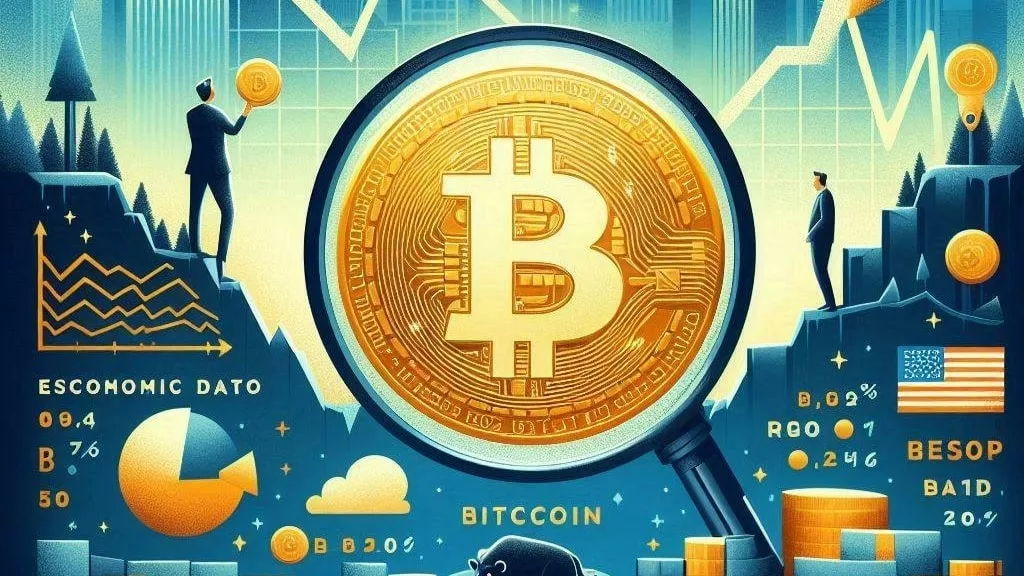
Crypto entrepreneur Anthony Pompliano has shared his perspective on how Bitcoiners were ahead of the curve in recognizing flaws in US economic data and capitalizing on the potential upside. In a recent post, Pompliano stated that Bitcoin enthusiasts were the first large group to see through inaccuracies in government statistics and position themselves for financial gains if they were proven correct.
Pompliano’s comments came on April 12 via a post on X (formerly Twitter), where he emphasized that Bitcoiners figured out a way to benefit from the upside if their assumptions about the flaws in the US economic data turned out to be true. He claimed that while many mainstream finance figures have relied heavily on government statistics, Bitcoiners managed to approach the situation from a different angle.
According to Pompliano, the mainstream financial community has been misled by inaccurate data reports from the government, and Bitcoiners understood early that these figures didn’t align with reality. Pompliano further pointed out that the government’s data regarding inflation, employment, and GDP have been subjects of controversy and skepticism. He believes that over time, more individuals in the financial world will come to realize that much of this data is flawed.
Pompliano’s skepticism about the validity of official economic data is not a new stance. In fact, in a March 20 LinkedIn post, he referenced a conversation between Scott Bessent, US Treasury Secretary, and the hosts of the All-In podcast. During the interview, Bessent admitted that he doesn’t fully trust government economic data and stressed the importance of listening to the people rather than blindly following official reports.
Pompliano believes that this growing mistrust in official data could ultimately lead to a significant shift in how economic indicators are interpreted. According to him, Bitcoin’s role as a decentralized and alternative financial asset is becoming more appealing, especially as traditional data points continue to lose credibility.
One of the key economic policies that Pompliano has questioned is the imposition of tariffs by US President Donald Trump. Tariffs were initially seen as a way to protect domestic industries, but Pompliano suggests they have contributed to the distortion of key economic indicators. He believes that the widespread concerns about the long-term impacts of tariffs have led some analysts to predict a shift in the global economic landscape, with Bitcoin potentially emerging as a stronger alternative to the US dollar.
Pompliano’s remarks about tariffs come amid growing discussions about the US dollar’s future. The US Dollar Index (DXY) has been on a downward trend, dropping 8.06% since the beginning of 2025, raising questions about the dollar’s stability in the long term.
Amid these macroeconomic uncertainties, analysts have recently pointed out that Bitcoin has displayed uncharacteristic behavior compared to the broader stock market. Historically, Bitcoin has been more volatile than traditional assets like stocks, particularly during times of macroeconomic turmoil. However, in early April, Bitcoin held steady above $82,000, even as US equities markets experienced a sharp decline.
In fact, Bitcoin rallied to $84,720 during this period, indicating a growing demand for alternative stores of value as concerns about the traditional financial system mount. Pompliano believes this behavior reinforces the idea that Bitcoin could continue to rise in value, particularly if more people begin questioning the reliability of traditional financial markets and government data.
Former BitMEX CEO Arthur Hayes also weighed in on the recent developments, suggesting that Bitcoin may be entering a phase he refers to as “up only mode.” Hayes believes that increasing uncertainty in the US bond market and the broader financial system could drive investors away from traditional assets like bonds and towards Bitcoin and other alternative investments.
Hayes’ comment highlights the growing sentiment that Bitcoin could outlast traditional fiat currencies like the US dollar, particularly as global financial instability increases. This idea aligns with Pompliano’s view that Bitcoiners were ahead of the game in understanding the true state of the economy and positioning themselves accordingly.
As the economic landscape continues to evolve, Pompliano’s commentary underscores a broader shift in how people are viewing Bitcoin. With ongoing concerns over inflation, job numbers, and GDP statistics, Bitcoin’s appeal as a decentralized asset could continue to grow.
While traditional financial markets rely heavily on government data, Bitcoiners have demonstrated a keen awareness of the flaws within these reports and have used this insight to position themselves for potential gains. As more people come to realize the limitations of government data, Bitcoin’s role as a safe haven investment could strengthen, potentially setting the stage for further price growth in the future.



Get the latest Crypto & Blockchain News in your inbox.